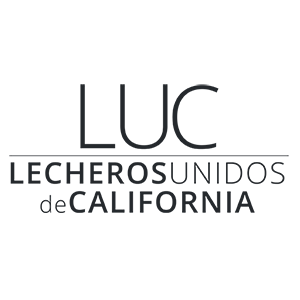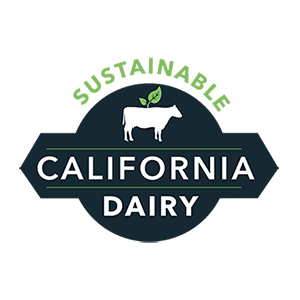Western United Dairies Government Affairs Team
One of WUD’s top legislative priorities this year is Assembly Bill 558 (Nazarian) which seeks to promote plant–based school meals over conventional meals which include nutritious meat and dairy offerings. Specifically, the bill would allow agencies to request up to a $0.30 reimbursement per meal for plant–based offerings, nearly three times the true cost differential of offering such meals (analysis from the Los Angeles Unified School District suggests that the difference in cost between a plant–based meal and a conventional school meal averages approximately $0.12). Incentivizing educational agencies to favor plant–based meals over convention meals is particularly troubling because the prioritization of plant–based school meals is inconsistent with the state’s Farm to School program, risks diverting funds intended to nourish all California school children, and risks increasing California’s GHG emissions while disadvantaging the state’s agricultural producers.
The bill will be heard in the Senate Education Committee on 6/16 and WUD remains “opposed” to AB 558 and has offered the members of the committee with a number of arguments reinforcing why the bill should be shelved.
California’s foremost priority should be sufficiently feeding and nourishing our schoolchildren. According to Feeding America, more than 1.3 million children in California lived in food–insecure households before the onset of the COVID–19 pandemic. In Los Angeles County, an astonishing 18.2% of children are food insecure according to figures from the Population Reference Bureau. But the “COVID–19 pandemic has caused a public health and economic crisis…. The repercussions [of which] will include added hardship for already vulnerable populations as well as a significant increase in the number of people experiencing food insecurity,” Feeding America explains. The number of California children experiencing food insecurity is expected to climb by 864,100 because of the COVID–19 pandemic, bringing the state’s total to2.2 million food–insecure children.
Given the breadth of food insecurity among California’s schoolchildren, the state’s first priority should be ensuring that all California students receive adequate nutrition in school. As long as a significant number of California schoolchildren remain hungry and malnourished, the state should not direct funds toward promoting costlier plant-based processed foods above other healthy, nutritious products. Nor should the state be funding advertising, menu creation, and taste tests for plant-based foods until California first achieves the priority of providing baseline nutrition to every schoolchild in the state.
Claims that AB 558 will “reduc[e] greenhouse gas emissions” are misleading and the bill may serve to exacerbate GHG emissions. Claims invoked in favor of AB 558 relating to the GHG emissions of the livestock sector are highly misleading. For instance, sponsor Social Compassion in Legislation has argued that “meat and dairy specifically account for 14.5%” of global GHG emissions. In the United States, however, USDA’s Agricultural Research Service has found livestock production responsible for only 3.3% of GHG emissions, and CARB analysis reflects similar contributions attributable to beef and dairy production in California. Importantly, the Farm to School program prioritizes the purchase of California–grown beef and dairy products, which have a far lower GHG footprint than similar goods produced abroad. By using global statistics, the sponsors of AB 558 are providing misleading information about the purported ills the bill seeks to remedy.
The author has argued that “a pilot analysis of Oakland Unified School District, conducted by Friends of the Earth, documented a 14% reduction in carbon emissions and a 6% reduction in water use as a result of implementing the goals of this bill.” Importantly, this study was not independent nor peer–reviewed, but rather an agenda–driven analysis by Friends of the Earth, which has a stated policy goal of “dramatically reduc[ing] meat consumption.” Further, Friends of the Earth’s own study acknowledges that it was based on “global averages” (emphasis added) of GHG emissions and that “the data used is imperfect, as it does not account for significant shifts in production practice.”
Senate Education Committee to Hear “Plant–Based” Foods Legislation Indeed, independent analyses regarding the GHG emissions attributable to the consumption of food products do not support these claims. For instance, A Consumption–Based Greenhouse Gas Inventory of San Francisco Bay Area Neighborhoods, Cities and Counties (Jones & Kammen 2015), commissioned by the Bay Area Air Quality Management District, found that a majority of GHG emissions related to diet were from food sources other than meat and dairy.
Additionally, claims regarding the GHG emission reduction benefits of the bill fail to adequately contextualize livestock’s role in GHG emissions and GHG emission reductions. For instance, research from the University of California Cooperative Extension has demonstrated that livestock grazing reduces the incidence, spread, and severity of wildfire on California’s rangelands—reducing GHG emissions which would result from wildfires. Research demonstrates that cattle remove 11.6 billion pounds of fine fuels on rangelands each year, and a follow–up study is underway to quantify GHG emissions reductions attributable to cattle grazing. Productively grazed rangelands also serve to sequester carbon in healthy soils, reducing levels of atmospheric carbon.
Moreover, California’s dairy farmers and cattle ranchers lead the world in environmentally sustainable livestock production, including the reduction of livestock methane emissions. According to the California Department of Food and Agriculture, for instance, California’s dairy industry is on track to reduce its manure methane emissions by more than 57%. California’s dairy and beef producers continue to adopt new technologies and best practices based on emerging science to ensure the lowest possible GHG footprint from nutritious beef and dairy products.
Finally, AB 558 may exacerbate GHG emissions from school meals. As noted above, AB 558 risks moving California’s schools away from locally sourced foods, instead of incentivizing schools to offer pupils globally sourced processed foods processed and produced in California – with significant GHG emissions attending the cultivation of the constituent ingredients (e.g., soy), their transportation into the state, and the manufacture and production of end-products. A plant-based burger alternative, for instance, contains upwards of 21 different ingredients. According to the New York Times, producers of plant-based meat alternatives do not “disclose[ ] the total amount of greenhouse gas emissions across all of [their] operations, supply chains, or consumer waste. They also do not disclose the effects across all of their operations on forests or how much water they use.” Indeed, NYT reports that the manner in which these companies source products like soy “could…be involved in deforestation issues.” Without data on the GHG emissions from plant-based food processors, claims that the bill would benefit the climate are entirely ill-founded. Indeed, by incentivizing the purchase of globally-sourced ingredients, AB 558 may increase GHG emissions from school meals.
Beef and dairy contribute to a well–balanced diet and are proven to advance students’ educational success. Evidence supports the inclusion of beef and dairy in a healthy diet. According to the Centers for Disease Control and Prevention, students who drink one or more glasses of milk per day are more likely to have higher grades, with 43% of high school students earning mostly As drinking at least one glass of milk per day as compared to 28% of students with mostly Ds and Fs. Likewise, beef is an authentic source of high–quality protein with numerous nutritional benefits. A 4–ounce serving of 93% lean ground beef has 10 essential nutrients at 10% or higher than their respective daily values per serving, including zinc, iron, and B vitamins all in about 170 calories, providing overall fewer calories, fat, saturated fat, and sodium (and more protein) than beef alternatives.
Dairy milk has a unique package of essential nutrients that can be difficult to replace in a healthy dietary pattern, especially when compared with plant–based beverages. This is even more important for young children and adolescents, with dairy foods making a critical contribution to child nutrition programs that promote optimal growth and development, reduce risk of developing chronic diseases, and support academic achievement and success. According to the North American Society for Pediatric Gastroenterology, Hepatology, and Nutrition, substituting milk with a plant-based alternative that “does not provide a similar nutritional profile to [cow’s milk] can be deleterious to a child’s nutritional status, growth, and development” with well-documented side effects from the misuse of plant-based beverages including “failure to gain weight, decreased stature, kwashiorkor [a form of severe malnutrition], electrolyte disorders, kidney stones, and severe nutrient deficiencies including iron deficiency anemia, rickets, and scurvy.”
Nutrition research continues to demonstrate the benefits of dairy foods as an affordable and sustainable way to address the nutritional needs of a growing population, particularly children. Actions that restrict single nutrients or food components such as animal protein without focusing on the impacts to overall diet quality could unintentionally limit access to and consumption of nutritious foods, like milk and dairy foods, which nourish children every day in school meal programs. Limiting sources of high–quality protein is likely to have an unintended, negative impact on human health and worsen inequalities and undernutrition, including child undernutrition, which can have life–long consequences.
Beef and dairy are key to providing adequate nutrition in schools and are proven to promote students’ educational success. As such, the state should not incentivize measures to supplant beef and dairy on school menus.













